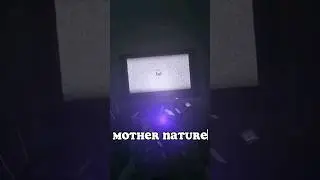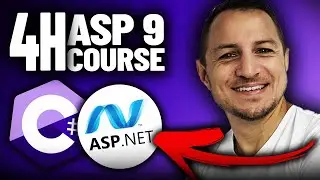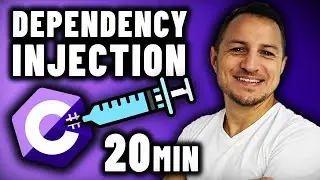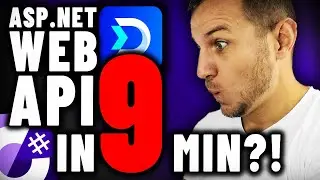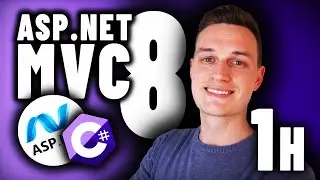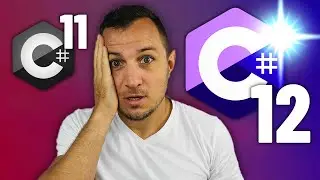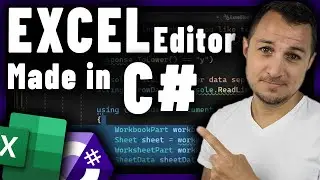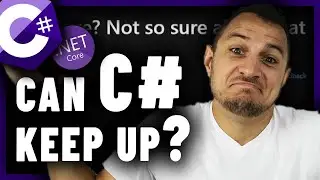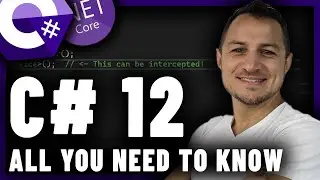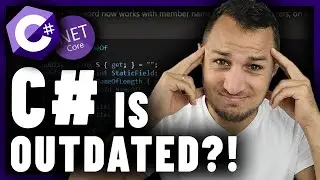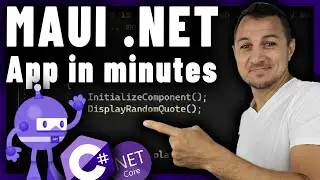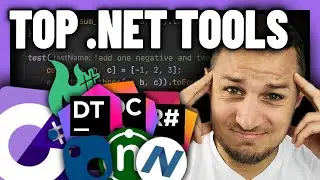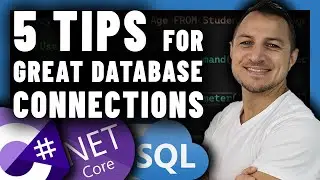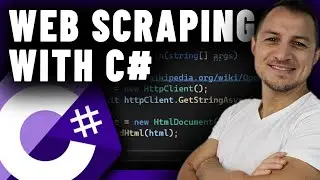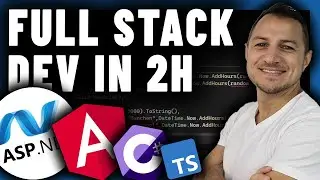Top 5 PRO TIPS for Efficient DATABASE CONNECTIVITY in .NET: Boost Your App Performance Today!
🔥 Watch this before you build your next database! 5 TIPS for GREAT Database Connections!
🐝 Thank you Devart for sponsoring this video! Check out Devart at the following link! https://www.devart.com/dotconnect/ora...
🚀 SKYROCKET your C# skills and become a sought-after C# developer with our C# Progress Academy: https://www.udemy.com/course/master-f...
👊 Want more C#? Check out our FULL C# Masterclass! https://www.udemy.com/course/complete...
Timestamps:
00:00 Introduction
00:29 What do we mean by Database Connection?
01:10 Tip 1 Connection Pooling
02:39 Tip 2 Optimize Connection Strings
04:14 Secret Tip!
04:59 Tip 3 Handling exceptions
06:15 Tip 4 Use Command Parameters
07:25 Tip 5 Efficient Data Retrieval
08:41 Get more here!
08:54 Thanks for watching!
We'll make sure to make a Developer out of you in no time!
So, what is C#?
C# (pronounced "See Sharp") is a modern, object-oriented, and type-safe programming language. C# enables developers to build many types of secure and robust applications that run in .NET. C# has its roots in the C family of languages and will be immediately familiar to C, C++, Java, and JavaScript programmers. This tour provides an overview of the major components of the language in C# 8 and earlier. If you want to explore the language through interactive examples, try the introduction to C# tutorials.
Now, what is data connection?
Database connectivity bridges your application and a database, enabling operations like reading, writing, updating, and deleting data.
A database connection is a facility in computer science that allows client software to talk to database server software, whether on the same machine or not. A connection is required to send commands and receive answers, usually in the form of a result set.
Connections are a key concept in data-centric programming. Since some DBMS engines require considerable time to connect, connection pooling was invented to improve performance. No command can be performed against a database without an "open and available" connection to it.
How do we have efficient database connections?
Tip 1: Use Connection Pooling. This technique reduces overhead by reusing connections, like a fleet of taxis. Efficient management ensures connections are used and closed at the right time.
Tip 2: Optimize Your Connection Strings. Fine-tune your connection string parameters for efficient database connections. For example, setting the right timeout value prevents indefinite waits, and specifying the pool size balances connection availability and resource consumption.
Tip 3: Handle Exceptions Properly. Use try-catch blocks to handle exceptions and ensure connections are closed properly. This is good coding practice and can prevent application crashes or unexpected behavior.
Tip 4: Use Command Parameters. These can protect against SQL injection attacks and improve performance by allowing SQL Server to cache the execution plan for a stored procedure.
Tip 5: Efficient Data Retrieval. Retrieve only necessary data using SELECT statements wisely, limiting data returned with WHERE clauses, and avoiding unnecessary JOINs. This makes your application faster and reduces database load.
Efficient database connectivity boosts your .NET application's performance. Using these tips can help ensure your applications are fast, reliable, and secure. For Oracle databases, consider Devart's dotConnect for Oracle.
Learn more in the video! Happy Coding!
#csharp #coding #tutorial #learn #microsoft #net #aspnetcore
TAGS
SQL,Sequel,database,tables,imposter,sequel into,beginners,relational,databases,database tutorial,sql,sql tutorial,sql for beginners,mysql,exception,csharp,csharp tutorial,c sharp,connection pooling,optimize connection strings,connection string,exception handling,command parameters c#,command parameters,efficient data retrieval,Oracle,App Performance,SQL Server,SQL Injection,Secure Connection,Efficient Coding.,life hacks,tips,tips and tricks
tutorialsEU offers you free video tutorials about programming and development for complete beginners up to experienced programmers.
This includes C#, Unity, Python, Android, Kotlin, Machine Learning, etc.
Stay tuned and subscribe to tutorialsEU: https://goo.gl/rBFh3x
C#: / @tutorialseuc
Facebook: / tutorialseu-109380204093233
LinkedIn: / tutorialseu
Discord: / discord





